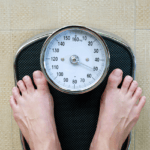Non-communicable diseases are on the rise, be it diabetes, heart diseases, or cancers. Specific risk factors are known to be behind such upsurges like obesity, sedentary lifestyle, and dietary mistakes. But perhaps insufficient sleep is the most important yet neglected cause behind this rise of specific ailments. Yes, sleep deficit may lead to obesity, metabolic disorders, cardiovascular events, psychotic problems, and even cancer.
How much sleep is enough?
This question is not that straightforward as it may sound. There is a considerable individual, racial, gender, and ethnic variance between the individuals. Recently, Sleep Research Society of the US and American Academy of Sleep Medicine came up with a joint statement that adults should get more than 7 hours of sleep each day for optimal health1.
However, the latest CDC data indicates that at least one-third of the Americans are not getting enough of sleep2. Things are even worse for ethnic minorities. When it comes to gender gap, men seem to sleep less as compared to women, and that may explain the health disparities between various sections of society. It is now more than evident that sleep is more related to wellbeing then ever considered.
What are the health risks of insufficient sleep?
Sleep has detoxifying, regenerative effect on the body; it helps to reset, defrag the brain, thus being vital for physical and mental wellbeing. Lack of sufficient sleep would increase the risk of mood-related disorders; it would cause emotional distress and attention deficit. Those who do not sleep enough are more prone to have poor cognitive skills, lower social skills; they are also at greater risk of motor accidents, and so on.
Unhealthy sleep hygiene promotes wrong lifestyle choices disturbing metabolism, causing neuro-endocrinal alterations, chronic inflammation. Sleep insufficiency elevates the risk of mortality from heart attack, coronary heart disease, stroke, asthma, COPD (chronic obstructive pulmonary disease), cancer, arthritis, depression, chronic kidney disease, and diabetes to name the few.
Improving sleep hygiene for better life
In order to enhance the sleep duration and quality, it is essential to identify the reasons, reduce risk factors like obesity, smoking, alcohol abuse, and sedentary lifestyle. It is also significant to understand that sleeping longer than 9 hours may be as bad for health as sleeping less, these are just two extreme sides of the same disorder, often sharing the causes and outcomes.
Here are some of the tips for improving sleep quality:
- Do not use gadget (like cellphones) while in the bed, it would shorten the time to get asleep in addition to many effects it can cause due to electrical rays it emits in the cause of operation
- Ensure that bedroom is free from noises, if required remove the television from the bedroom, ensure that the bedroom is dark enough and the temperature is comfortable
- Avoid large meals and caffeine before going to bed. You should be able to have more than three between your last meal to the time you go to bed.
- Exercise daily. If a person is little physically tired he or she has far better chances of feeling asleep quickly and enjoying a sound sleep
- Make routine, always sleep at the fixed time, remember that sleeping at different times disturbs the so-called circadian rhythm which is equally bad for health as insufficient sleep
- Practice mindfulness, or read a book before going to bed, the trick is in identifying the method that relaxes your mind.
References
- Watson NF, Badr MS, Belenky G, et al. Joint Consensus Statement of the American Academy of Sleep Medicine and Sleep Research Society on the Recommended Amount of Sleep for a Healthy Adult: Methodology and Discussion. Sleep. 2015;38(8):1161-1183. doi:10.5665/sleep.4886
- CDC – Data and Statistics – Sleep and Sleep Disorders. Published July 13, 2017. Accessed February 26, 2018.













